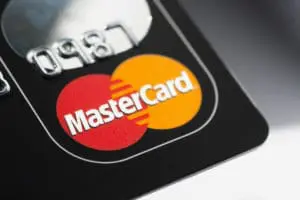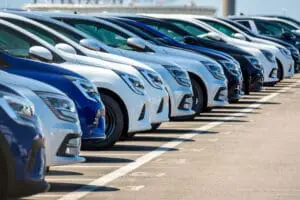Weak competition has led to supermarkets ripping off consumers at petrol pumps
Are you tired of feeling ripped off every time you visit the petrol pump? You’re not alone.
The Competition and Markets Authority (CMA) this week exposed a shocking truth – weak competition in the supermarket industry is allowing them to take advantage of consumers at petrol pumps.
Supermarkets are typically the cheapest place to buy fuel. But Asda, Morrisons, Sainsbury’s and Tesco were all found to have increased their profit margins on fuel prices, adding up to £900 million in extra costs in 2022 for UK consumers.
The CMA has proposed a new government-backed fuel finder scheme to help drivers find a better deal at the pump in the future. Supermarkets and other fuel retailers will be forced to give drivers instant access to live, station-by-station fuel prices.
Sarah Cardell, Chief Executive of the CMA, said:
‘Drivers buying fuel at supermarkets in 2022 have paid around 6 pence per litre more than they would have done otherwise, due to the four major supermarkets increasing their margins. This is why we’re recommending the UK government legislate for a new fuel finder scheme which would make it compulsory for retailers to make their prices available in real time.’
The move will make it easier for drivers to shop around for cheap fuel in the future but doesn’t fix the fact that many consumers have been ripped off. We think the only fair thing is for supermarkets to give consumers back what they’re owed.

Exploiting a lack of competition
The CMA is the watchdog responsible for promoting competition and protecting consumers’ interests. They conducted an investigation into the pricing practices of major supermarkets, and their findings shed light on a concerning trend – supermarkets charging excessive prices for fuel, leaving consumers out of pocket.
Supermarkets charged drivers 6p more per litre for fuel than they would have in a competitive market. Asda and Morrisons were found to be intentionally setting targets to make more money on fuel. Asda’s profit margin target in 2023 was more than three times higher than it had been in 2019, and Morrisons had doubled its target margin in the same period. Sainsbury’s and Tesco were found to have raised their prices in line with these changes.
Such weak competition meant that supermarkets were able to set higher fuel prices without fear of losing customers to their rivals.
Implications for consumers
The consequences of this unfair practice are clear – consumers end up paying more for their fuel. This can have a significant impact on monthly budgets. With the cost of living already on the rise, this added expense adds yet another burden to hardworking individuals and families.
The road to change
In response to the CMA’s fuel report the government has committed to changing the law to force supermarkets and other fuel retailers to make fuel pricing data publicly available. It says this will allow third parties to create price comparison apps and websites, which in turn will drive prices down through greater transparency and competition.
Grant Shapps, Energy Security Secretary, said:
‘Some fuel retailers have been using motorists as cash cows – they jacked up their prices when fuel costs rocketed but failed to pass on savings now costs have fallen. I’m putting into action the CMA’s recommendations and standing by consumers – we’ll shine a light on rip-off retailers to drive down prices and make sure they’re held to account by putting in new laws to increase transparency.’
The government has not yet said when this will be put into action.
What can consumers do now?
Retailers currently only provide information on prices at petrol stations, making it difficult to shop around unless you’re willing to drive around looking at prices. But there are already a number of websites and apps that help you compare diesel and petrol prices. One example is PetrolPrices.com which uses fuel price data collected from fuel card transactions, customers using its app and verified forecourt owners to publish comparable fuel costs.
Related claims

Mastercard
Mastercard is accused of owing up to £10bn to 46m UK shoppers. Sign up to stay updated – you could be owed money whether you had a Mastercard or not.

JLR
Jaguar Land Rover faces a legal battle over complaints that faulty parts are impacting the reliability of a range of its diesel cars. Sign up to the claim.

Car delivery costs
A £150m lawsuit claims five major shipping companies charged millions of motorists and businesses too much for the delivery of new cars and vans.


